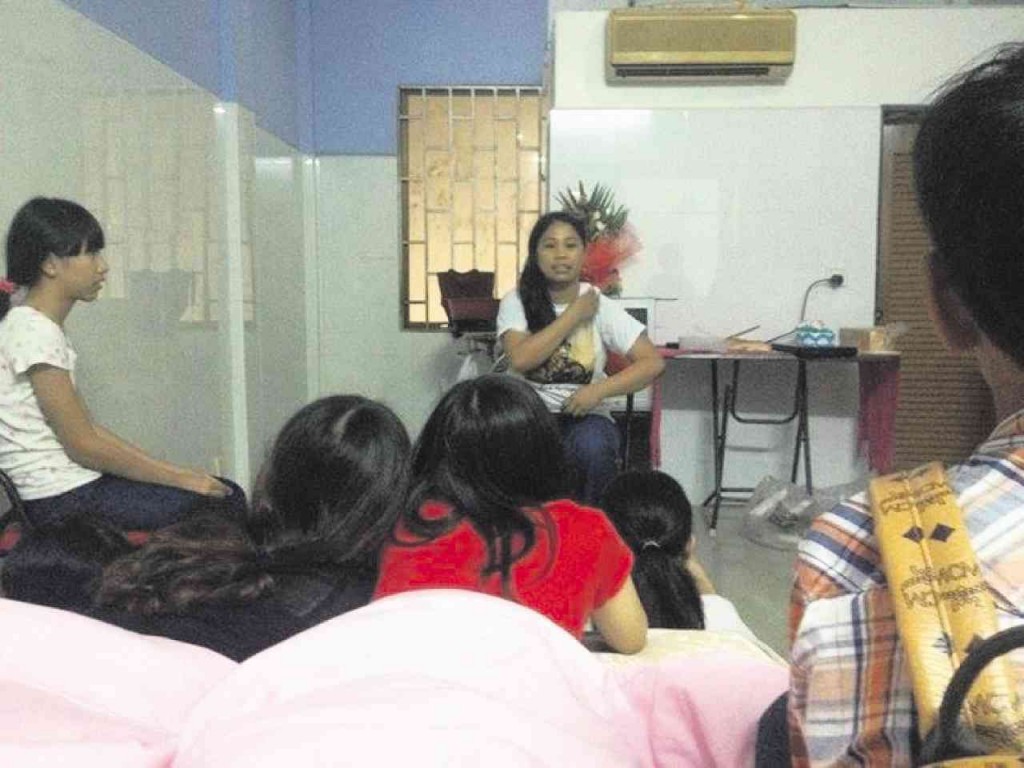Celia Venerable Malunes, 35, is not your usual Filipino teacher teaching English or Math to Cambodians and Burmese (Myanmarese).
A product of University of San Agustin in Iloilo City and a graduate of Asian Center for Missions, she chose to become a “tent missionary” because of a deep passion for God and the people.
A tent missionary is someone who is doing missionary works while also working in a secular or Christian company or organization for financial support.
She was sent by God’s Heartbeat Pentecostal Church to do missionary work in Asia. Cambodia was her first missionary assignment.
Presently, she is a kindergarten teacher at Horizon International School in Rangoon, Burma.
Missionary work, teaching
Malunes spent seven years in Cambodia as head teacher of Graders Department at Western International School in Siem Reap.
Her decision to move to Burma was a long process. She also felt that her contributions to the spread of Christianity in Cambodia already reached its peak.
Countries with few Christians like Cambodia have been receiving support from Christian organizations and there is already an increasing number of locals who can effectively reach out to people.
Nepal trip
Before coming to Burma, she headed for a short mission trip to Nepal.
“I saw how Christian leaders and workers need help to spread God’s love in many ways, like medical missions, community development, livelihood programs, discipleship trainings, fundraising and mission mobilizations, etc.
“That trip made me want to go back to help in ways I could,” she says of the experience.
However, obtaining a long-term visa is very difficult. Chances of working in Nepal is also slim. Thus, she opted for Burma.
After Aung San Suu Kyi (former political detainee, now head of Burma) was released from house arrest in 2010, Burma started the transition stage of opening the country to foreign development workers including teachers and some missionary works.
Cautious
A strict Buddhist country and a military junta, international aid workers and Christian missionaries are still cautious on their safety. The situation did not deter Malunes to continue her mission work. She arrived in Burma in February with a visitor visa.
“As an experienced teacher, I did not find any difficulty in finding a job in Myanmar. I applied and after two days I was hired. I am now a legal worker. Myanmar can also be my home base for short-term trips to Nepal since my school pays well. I can support my personal needs, can help in my ministry in partnership with the locals, and also can even allow me to help my family and home church in the Philippines,” she explains.
Aside from teaching, she is helping to strengthen the local Christians or Churches to make their ministries more attractive and effective in reaching out to non-Christians.
Mission challenges
Malunes is connected with three different churches. Like in Cambodia, she also trains young people in performing arts such as interpretative dancing, skits/drama and action songs for their Children Ministry. She also teaches English in Bible schools as well as for Church members and locals who would like to learn.
Although there are Christians in Burma, the Christians and Filipinos working in schools are not allowed to participate in any religious gatherings.
Malunes says that during her interview and in her contract it is stated that she is not allowed to do any Christian activity or volunteering.
Although religious gatherings are not really banned, they have to refrain from calling themselves “pastors” or “missionaries.” especially the foreign workers.
Language, cultural barriers
“Language and cultural barriers are also problems. Government laws sometimes limit us as well from being more effective and focused. Some missionaries get homesick from time to time but due to financial limitations, they can’t just go home anytime they want,” she says.
In Malunes’ case, she had to overcome homesickness but the most difficult part is getting along with people you work with—whether they are locals, expatriates or fellow Filipinos. She says that patience and open-mindedness, knowing that everyone is unique from each other, helps her.
There may be no discrimination in her mission works, but as a teacher, she experienced discrimination in Cambodia.
“They look up to western people so much because of their color and accent. Filipinos don’t have much difference from them in appearance. Westerners are favored with higher salary, more respect and greater opportunities to the point that classes that I had been teaching were given to them without any reason,” she says.
In Burma, they have high respect for Filipinos especially in the field of education, music, entertainment and engineering. She says that Filipino soaps are getting popular and of course Manny Pacquiao who is the most visible symbol of the Filipinos in the countries she visited.
All called to mission
“Doing mission is not an adventure trip. They should be ready physically, mentally, emotionally and spiritually. Although we need to be ready for difficult and challenging situations like lack of material needs such as food and necessities, true missionaries are more blessed and are more comfortable in their chosen field.
“When God calls us he will surely provide, guide and protect us and even will promote us from a level of faith to others. Some people think they are too young or too old to do such a thing. I believe there’s nobody too old or too young to do something in the mission field because each of us has been given gifts that we may use to partake in the task of sharing love to others,” Malunes says.


